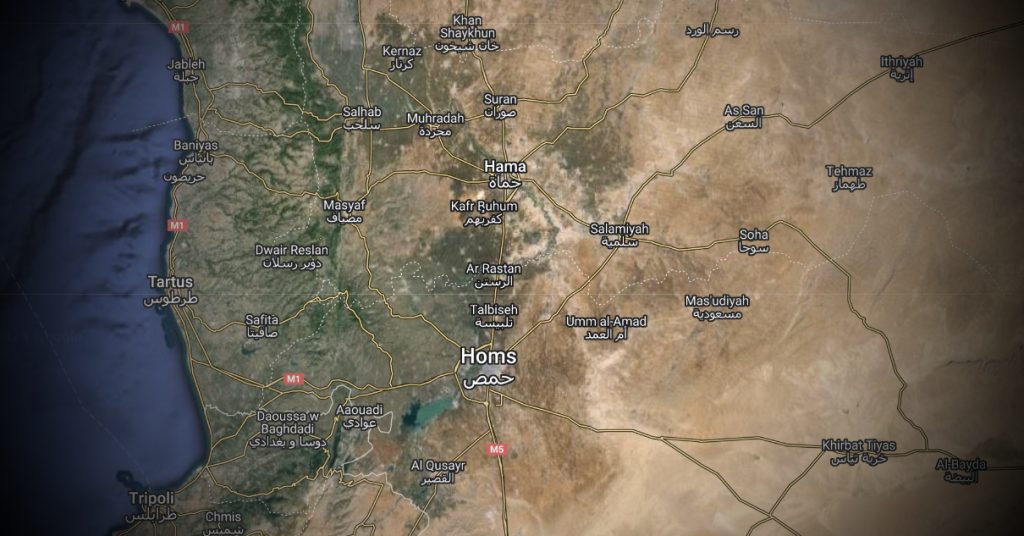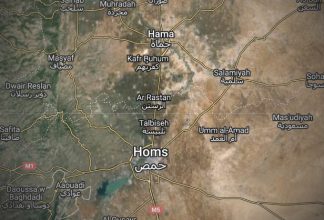Report 3: Opening Statements by the Defense Counsel and the Plaintiff Counsel

During the first week of the main hearing, the prosecution gave its opening statement. On Monday 22 April, the defense counsel and the plaintiff counsel presented their respective opening statements, which will be the subject of this report. An Arabic version of the report can be found here.
The Plaintiff Counsel’s Opening Statement
Legal Framework
The plaintiff counsel Degol Embaye commenced by delineating the pertinent legal framework, affirming that forthcoming arguments would hinge upon the Rome II Regulation, applicable at the time of the offense, which governs non-contractual obligations. Consequently, the regulation is applicable on claims for compensation. Article 4.1 of the Rome II Regulation expressly stipulates that the governing law is that of the state where the damage occurred. With regard to indirect damages, as exemplified in several of the plaintiffs’ cases, reference was made to a precedent in the Court of Justice of the European Union, which establishes that the governing law is that of the state where the direct damage occurred. Embaye elucidated that since the damages transpired within Syrian territory, Syrian law would consequently dictate both the entitlement to compensations and the calculation of the amounts awarded.
The Syrian criminal code contains a provision regarding civil liability, which differs from the Swedish legal framework. Embaye referred to the part in the civil code describing the principles for calculating compensation. He emphasized the absence of Sharia law in the Syrian civil law. However, due to a separate Syrian law concerning interest being incompatible with Swedish law, the plaintiffs claim no interest.
In regard to the plaintiffs’ individual claims, Embaye drew upon the Syrian Criminal Code to elucidate their entitlement to compensation, which encompasses both physical injuries and psychological harm. Additionally, he cited pronouncements from the Syrian Court of Cassation, the equivalent to the Swedish Supreme Court, outlining the factors to consider in determining the magnitude of damages. According to the court’s jurisprudence, the right to compensation for the victims is dependent on whether the accused is convicted or not. Furthermore, he outlined that the size of compensation is contingent upon, inter alia, potential economic losses as a result of the crime, the age of the victim, the number of dependents, societal living costs, and the number of days that the victim has been unable to work as a result of the crime. A significant discrepancy between Swedish and Syrian law, Embaye argued, is the Syrian law’s inclusion of inflation as a variable in determining compensation. High inflation rates should, according to Syrian law, be adjusted for in the calculation process of compensation awarded to victims.
Individual Claims
Embaye proceeded to discuss the individual claims, providing an account for each assessment criterion to justify the award of compensation, as well as detailing the calculation of the compensation amount for each victim. The five individual claims from the eight plaintiffs were based on physical injuries and psychological harm, as well as property damages stemming from missile attacks.
One of the plaintiffs, whose brother was fatally injured in a missile attack occurring between Baba Amr and Khalidiya on 27 January 2012, seeks compensation for the psychological distress inflicted upon him due to the attack. Embaye explained that the determination of the compensation amount was predicated on a consideration of what may be a reasonable compensation for the crimes committed, with particular attention paid to the number of dependents relying on the plaintiff for support.
Embaye presented that a second, third and fourth plaintiff that were all claiming compensation for an attack directed at the media center in Homs on 22 February 2012 in which all of them were both physically injured and psychologically harmed. The calculations regarding compensation for injuries in these cases were, according to the counsel, determined based on the cost of living in Syria today.
According to the counsel, a fifth plaintiff is seeking compensation for an attack occurring between April and June 2012 in which his and his wife’s (a sixth plaintiff) home was destroyed. The amount of compensation was in this case based on the value of the property.
Evidence
To support the plaintiffs’ claim for compensation, Embaye cited evidence demonstrating the involvement of the 11th division in the attacks in Homs that led to the plaintiffs’ injuries. He noted that much of this evidence had already been referenced by the prosecution in its presentation the previous week and that he would therefore avoid repeating what the prosecution had already said.
It was stressed that the indiscriminate bombardment of Homs in the period between January and June 2012, which is the timeframe encompassed by the claims for compensation, constituted the basis for the claim of liability. The evidence presented supported the claim that the Syrian Army’s warfare included negligence of the principle of distinction and that the intent of the Syrian army was to suppress opponents to the Syrian government by fatal violence. Among other evidence mentioned by Embaye was the Middle East Security report “The Assad Regime” by Joseph Holiday, as well as an IIIM report, also referred to by the prosecutor.
Embaye referred to additional video material to substantiate the injuries of each plaintiff. A thorough description of the damages sustained was provided behind closed doors, out of consideration for the privacy and integrity of the victims.
The Defense Counsel’s Opening Statement
The defense counsel, Mari Kilman, outlined the defendant’s position in her opening statement, indicating that the defendant refutes all allegations, denies any intent related to the charges, claims to have acted under the order of superiors at the time of the alleged offenses and contests each individual claim.
Stance Towards the Criminal Acts as Charged
Kilman continued by addressing the criminal acts as charged. She emphasized that it was not contended that a non-international armed conflict occurred in Syria, but argued that it was not ongoing as early as 1 January 2012. She explained that the defendant did not attest that the warfare of the Syrian army during the relevant time frame included systemic attacks conducted in violation of the Geneva Conventions or other internationally binding provisions.
Kilman went on to say that the defendant had held the position of Brigadier-General and served as the head of the armament unit within the 11th Division of the 3rd Corps of the Syrian Army during the relevant time frame. However, Kilman explained, the defendant asserts that he did not play an active role in the division management’s supporting staff. His role and position did not render him a crucial component in the functioning of the armament within the division. Instead, he primarily held an administrative role within the armament unit.
Legal Principles
Introducing pertinent legal principles for the court’s consideration, the defense counsel outlined the Geneva Conventions, their additional protocols, and the Rome Statute as applicable frameworks governing international humanitarian law. She stressed that while the defense did not contest neither the occurrence of an armed conflict in Syria nor the nexus of the alleged offenses to the conflict, it remained the prosecution’s responsibility to substantiate these assertions.
In reference to the offense of aiding and abetting, Kilman referred to section 4 in chapter 23 of the Swedish Criminal Code, which stipulates that aiding and abetting a crime is punishable. However, she underscored that the provision stipulates that the provision does not apply if otherwise prescribed in other legislation. Kilman asserted that the Rome Statute contains provisions on aiding and abetting crimes which should take precedence over Swedish rules. The counsel cited Article 25 of the Rome Statute and particularly emphasized that the provision states intent as a necessary prerequisite for criminal liability to incur for complicity.
Kilman also discussed the regulations governing crimes committed under orders from a superior. She referred to section 8 in chapter 24 of the Swedish Criminal Code, which clarifies that an order from a superior may serve as a ground for exoneration.
Regarding the individual claims, the counsel argued that aiding and abetting a crime does not give rise to a liability to compensate the victims according to Syrian law. She underscored that it is incumbent upon the prosecutor to establish the existence of liability for compensation. Kilman further argued that if the defendant was to be convicted, the fact that he was performing his duties within the context of his position within the state army triggers vicarious liability for the army and thus exempts him for liability to provide compensation.
The Defendant and the 11th Division
Kilman went on to furnish contextual details regarding the defendant’s background. She notably underscored his Sunni-Muslim identity, which she claimed posed an inherent impediment to his advancement within the Syrian army. Additionally, she highlighted his status as a deserter, facing the imminent threat of execution upon return to Syria. Furthermore, particular attention was devoted to his military role, with an emphasis on administrative duties that preclude his involvement in the 11th division’s combat operations.
Evidence
As evidence, the counsel cited a CIJA report containing a search warrant for the defendant by the Syrian army, indicating the army’s active encouragement to search for defectors to be brought to the intelligence unit. Additionally, she referenced the defendant’s asylum interview with the Swedish Migration Agency as well as his police hearing during the preliminary investigation, revealing that he and his family faced threats from both sides of the conflict due to his opposition to both factions. As a result, they were forced to leave Syria unlawfully. The counsel underscored that the defendant had expressed in his hearings a fear of execution upon return to Syria.
Kilman also referenced sections of the interviews wherein the defendant explicitly disavowed any intention to assist or facilitate war crimes. She specifically highlighted one segment of an asylum interview in October 2016, in which the defendant informed the interviewer that he had abandoned his military service upon realizing that the armed forces had begun to employ lethal force against demonstrators as a tactic to suppress the protests. Specific emphasis was also placed on segments of the interviews where the defendant articulated his limited influence over strategic decisions concerning military operations conducted by the 11th division.
Next report
The next report will provide a summary of plaintiff hearings that began later in the afternoon of Monday 22 April, and which continue throughout the week.
